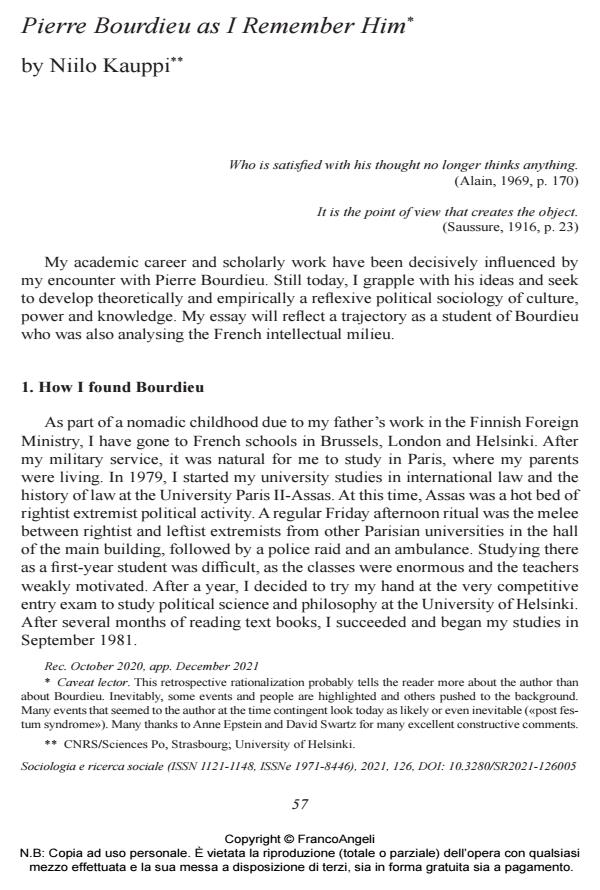Pierre Bourdieu as I Remember Him
Journal title SOCIOLOGIA E RICERCA SOCIALE
Author/s Niilo Kauppi
Publishing Year 2022 Issue 2021/126
Language English Pages 13 P. 57-69 File size 245 KB
DOI 10.3280/SR2021-126005
DOI is like a bar code for intellectual property: to have more infomation
click here
Below, you can see the article first page
If you want to buy this article in PDF format, you can do it, following the instructions to buy download credits

FrancoAngeli is member of Publishers International Linking Association, Inc (PILA), a not-for-profit association which run the CrossRef service enabling links to and from online scholarly content.
This portrait of Bourdieu’s laboratory in the early days describes the impact of the bourdieusian «tribe» on the author’s social destiny, especially to his attempt to develop a reflexive political sociology that explores the intertwinement of culture, power, and knowledge. Repeatedly, he depicts himself as an outsider suspended between several (geographical, disciplinary, and intellectual) worlds. Without directly addressing the issue of self-objectivation, the author puts it into practice as sociogenesis of several elements: relationships, collaborations, interests, oppositions/attractions, position-taking, scientific success.
Niilo Kauppi, Pierre Bourdieu as I Remember Him in "SOCIOLOGIA E RICERCA SOCIALE " 126/2021, pp 57-69, DOI: 10.3280/SR2021-126005